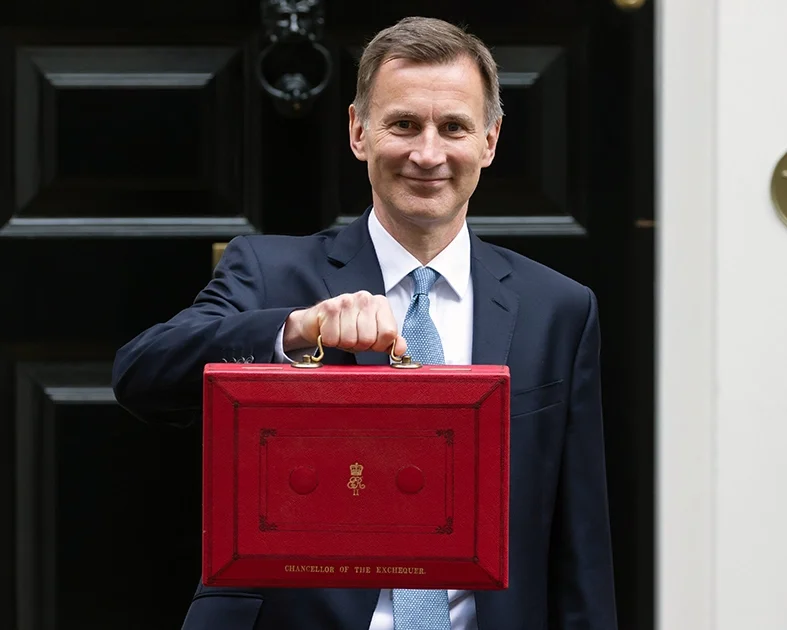
While Chancellor Jeremy Hunt announced changes to National Insurance and tax cuts for businesses in the autumn statement, HNWs who might have been expecting changes to inheritance tax rates have been left facing ‘uncertainty’ as an expected policy announcement on IHT was left out entirely.
In what was one of the final opportunities for a change in economic policy before the next election, the Chancellor opted to focus on what one HNW tax adviser has told Spear’s is a ‘media-friendly’ set of tax cuts for businesses and employees — while potential IHT cuts, changes to stamp duty, and possible reforms to the non-dom regime were absent.
The autumn statement’s tax breaks included the abolishment of Class II national insurance contributions for those who are self-employed, as well as a cut to the main rate of national insurance on employees, from 12 per cent to 10 per cent. Meanwhile, smaller companies will benefit from a freeze in business rates, worth £4.3 billion.
However, these policies will have little direct relevance for the lives of HNW individuals, private client experts say.
‘There was much speculation about possible SDLT and IHT cuts, but clearly the Chancellor is keeping his powder dry on this topic, perhaps deciding that those tax cuts are better dealt with in the March 2024 Budget which, of course, will be much closer to the general election,’ leading private client tax lawyer James Quarmby told Spear’s.
‘My initial impression is that the Chancellor has opted for the media-friendly (and difficult to criticise) decision to focus on cutting taxes on businesses and their employees.’
Meanwhile, the timing of the national insurance cut on employees from 6 January next year, rather than from the start of the new tax year on 6 April, will ‘only increase speculation of a May 2024 general election,’ Quarmby added.
Despite wide press speculation that inheritance tax could be altered, the absence of an announcement on IHT will add to the ‘uncertainty’ facing HNWs as they conduct their estate planning, according to Wedlake Bell’s Caroline Miller, who heads the firm’s private client practice.
[See also: The leading tax advisers and accountants for HNW individuals in 2023]
‘Uncertainty’ abounds for HNWs after autumn statement – but a policy change on inheritance tax could have ‘more of an impact’ later
In comments which chime with those of other advisers Spear’s spoke to following the autumn statement, Miller said it appeared likely that IHT policy changes would feature in the Spring Budget ‘so that they provide more of an impact in the lead-up to the General Election.’
‘These could include tinkering with the “non-dom” inheritance tax regime to take the sting out of the tail of Labour’s policies in this area as it is widely expected that the party will campaign on the basis of an abolition or reduction of non-dom tax concessions,’ Miller said.
Yet ‘none of this uncertainty helps high net worth individuals with their estate planning now,’ she added. ‘All we can advise at present is to bear in mind possible changes, but plan for the rest of this tax year to make use of the existing inheritance tax allowances whilst they are available – the annual exemption and “gifts out of surplus income” exemptions in particular.’
[See also: Why the non-dom status might not be worth it if you’re a HNW]
Miller continued: ‘If a Labour government is installed at some point in the next tax year, these reliefs could be taken away or substantially reduced. If inheritance tax announcements are included in the 2024 Spring Budget, high-net-worth individuals should also plan on reviewing their wills early in the next tax year as any inheritance tax structures in their wills may need to be revised.’
Inheritance tax, which was dubbed ‘double taxation’ by former minister Jacob Rees-Mogg, has been the subject of increasing government scrutiny in the last few years.
But given ‘that Labour are likely to take the opposite view and retain or increase the tax,’ Miller added that Conservative Party policies in this area ‘could make inheritance tax a battleground in the election, and an important way for the party to help win over high net worth voters.’
Lizzie Murray, a tax partner within Saffery’s private client group, said that while the national insurance reductions may be seen as a ‘welcome’ tax break for everyday employees, many were still ‘unlikely to be better off in real terms.’
‘Whilst this may come as welcome news to many, taxpayers will be wise to remember the effects of the oft-mentioned “fiscal drag” – the fact that personal allowances and general tax bands haven’t been increased in line with (recently very high) inflation,’ Murray said.
[See also: How HNWs should plan their tax affairs for 2024]
Enticing HNW investors to come to the UK
For Charles Russell Speechlys private client partner Piers Master, the newly published review into UK foreign direct investment, undertaken by Lord Harrington for HM Treasury and the Department for Business & Trade, could prompt changes making it easier for HNW investors to come to the UK.
The review, which was published alongside the autumn statement, ‘contained some useful insight into how the UK could get better at attracting the inward investment which is so important to the economy,’ Master told Spear’s.
‘Lord Harrington referred to the need for the UK to have a compelling investment offer – in other words, policies and activities specifically targeted at attracting inward investment. He referred to the need for “dedicated incentives such as grant funding or tax breaks, specific provisions in other areas (for example investor visas or fast-track planning decisions)”.’
This, he said, could suggest that the UK may ‘look again at reintroducing a high-net-worth investor visa’, to replace the previous scheme which was axed in February 2022.






